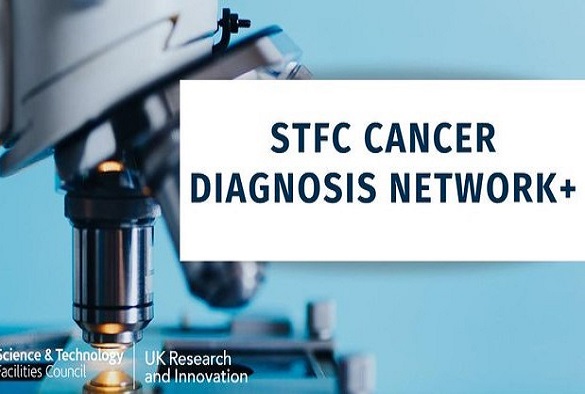Liverpool leads STFC Cancer Diagnosis Network to improve cancer diagnosis
Published on

Led by the University, a new interdisciplinary network of scientists that aims to improve cancer diagnosis has been formally launched at an event held at the University today (9 September, 2019).
The STFC Cancer Diagnosis Network+ will deliver a series of workshops, as well as fund scoping studies, proof-of-concept projects and PhD studentships, with the aim of bringing together innovative technologies and techniques to try to improve patient quality of life, increase the chance of patient survival and reduce associated cancer services costs.
With £500,000 of funding support from the STFC, it will focus on four themes: early diagnosis, precision and quantitative imaging, multimodal techniques and data science techniques applied to imaging and bioinformatics.
The multi-disciplinary network launch took place at the University and brought together experts from academia, hospitals and the healthcare industry. The first funding calls are also launched for the network and include PhD studentships, early career travel awards and training opportunities.
Dr Laura Harkness-Brennan from the University’s Department of Physics is the project’s Principal Investigator. She said: “Cancer accounts for 1 in every 6 deaths worldwide, making it the second leading cause of death. As well as having a devastating impact on patients and loved ones, it is estimated to cost the global economy £1 trillion every year.
“This challenge will become even more acute in our ageing society, since the incidence of cancer rises significantly with age. But there is a way to address this – we could reduce cancer mortality rates through earlier diagnosis and more accurate staging of disease.
“There is a wealth of expertise in the STFC science community that is currently being used in other areas of science – but that could be applied to addressing this challenge, for example, the development of high resolution and high sensitivity detectors, multispectral detectors, algorithms for image analysis and data mining techniques. For example, I have just started working with an industrial partner to apply the techniques used in my nuclear physics research to improve the accuracy of new breast cancer screening systems.”
Co-Investigator Professor Nandita deSouza is the lead academic radiologist at the Institute of Cancer Research and the Royal Marsden NHS Trust, and she added: “Combining multiple specialist skills is essential for addressing clinical science challenges more effectively.
“The challenges vary with clinical situation, geographical location and available resource. Understanding and overcoming them requires a multidisciplinary network.”
Find out more about the network here http://stfccancerdiagnosis.org.